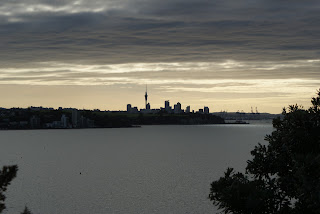A morning of rain - bringing a welcome coolness, though it would have made yesterday's events harder to manage.
I only met the late king once. 33 years ago, before I went to Tonga, I was asked to go to the Tongan High Commission in London for a briefing. The High Commission was at the top of NZ house, in a room so empty it was hard to imagine that any work ever took place there. The High Commissioner welcomed me with the words, ‘you’re in luck, the crown prince is in town.’ Moments later he came into the room, wearing a double-breasted suit and a monocle. It was as if a character from PG Wodehouse had stepped off the page. I don’t mean that as an insult; there are, after all, far worse fictional characters to come to life and I wouldn’t, for example, want to meet any from Evelyn Waugh on a dark night. After some opening pleasantries, HRH announced that it was time for luncheon. ‘You will join us, old boy, won’t you; we’ll just pop down to my club.’ So there I was in the Traveller’s Club, Pall Mall, feeling totally out of place in my tweed jacket, sitting opposite a totally at ease Tongan prince. ‘You’ll find the claret’s excellent’. It will be for other to judge his short reign. Tonga’s economic problems remain severe, but there’s been some progress towards a more democratic, participatory political life.
Children line the road waiting for the king's body to arrive on Monday.
Yesterday there were a few hours away from the rather oppressive atmosphere in Nuku’alofa. Winston and I went with Tohi, one of the older Anglican priests, on the short boat-ride to the island of Pangaimotu. Here, for many years, Earl and Anna Amberson have been running a low-key resort, mainly frequented by visiting yachts. It lost most of its wharf in a hurricane last month, so was looking rather sorry for itself. He's of mixed English, Kiribati, Danish and Tongan parentage. He was telling us that his father directed the building of many of the most prominent buildings in Suva: the Grand Pacific Hotel, Gorvernment House, etc. I went for a swim (I wasn't sure that I wanted to, but it seemed to be expected that a palangi would be keen to), the rusty bow of a hurricane-wrecked fishing boat sticking out of the water right by the beach. Anna is from Niua Topotapu, and is related to Winston, whose family come from themere. the Niuas are nearly 400 miles north of here, tiny dots in the ocean, difficult to access and therefore unspoilt. Anna has a vision of building an exclusive resort there, with glass-floored lodges built over the ocean.
Plenty of changes here in Tonga. Tongans have embraced the motor car with the zeal of converts, and as converts to the new religion of driving they give no quarter to the few remaining adherents of the old religion of walking. The earlier wave of worn-out Japanese runabouts has now given way to more sensible and rugged 4X4s and vans. You now never see a horse and cart ('what happended to the horses?'; 'We ate them!') and seldom see a bicycle - a pity as they are such good value, cause no pollution and are easy to use on a small, flat island.
Everyone has a mobile phone and many use that as their internet access to the wider world. Given that 30 years ago we had no phone and were totally reliant on airmail once or twice a week, this is remarkable. What hasn't developed yet, it seems. is the idea that it's sometimes good to turn a phone off. Yesterday, for old times sake, I visited the Post Office. Now rebuilt and partially turned into a cafe, it is as sleepy as ever, the staff seemingly incredulous that anyone might want to buy a stamp.
There are far more businesses. 30 years ago a few general stores provided very basic offering and were dependent on what had come in on the boats in the last few days. There are now many small, chinese-run supermarkets and some specialist shops: sportswear, office equipment, mobile phones (of course). Improvised 'Hair Salons' seem to operate in homes and I have even seen a couple of car wash sites.
Other things remain the same and I have to remind myself that, for example, one dog in the street is likely to run away but a pack is likely to chase you. I have had to run fast once and now avoid that area!























